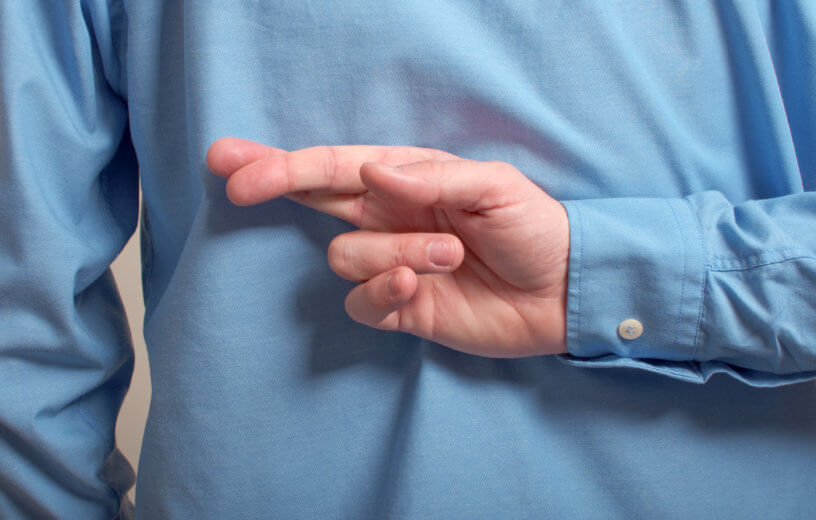WATERLOO, Ontario — People who frequently exaggerate and distort the truth — or peddle in “BS” — often think they won’t fall for the same stunt from someone else. According to a new study, it turns out these “BSers” aren’t so savvy after all. In fact, Canadian researchers say a “BS artist” is actually the most likely person to be fooled by misleading information.
A team from the University of Waterloo finds those who regularly try to impress or influence others using misleading, impressive-sounding misinformation frequently buy in to the same junk they sell to others. These individuals displayed an inability to distinguish between scientifically accurate facts and impressive-but-meaningless fiction. Study authors add the typical BSer is also likely to fall victim to fake news headlines.
“It probably seems intuitive to believe that you can’t bullshit a bullshitter, but our research suggests that this isn’t actually the case,” says lead author and cognitive psychology PhD candidate Shane Littrell in a university release. “In fact, it appears that the biggest purveyors of persuasive bullshit are ironically some of the ones most likely to fall for it.”
What BS actually counts as BS?
Study authors consider BS to be information someone uses to impress or mislead others with little regard for the truth. The team notes there is also types of BS people use in their conversations with others — persuasive and evasive.
Persuasive BS makes use of exaggerations and embellishments — the “big fish” story — to impress others or help someone fit in. Evasive BS on the other hand uses irrelevant or evasive comments in situations where a blunt answer will likely hurt someone’s feelings.
Researchers worked with over 800 participants in the U.S. and Canada during a series of studies examining their BS skills. The team analyzed the link between how often volunteers say they BS people and how well those same volunteers could pick up on exaggerations themselves.
Researchers had the group gauge how profound, truthful, or accurate they found a number of pseudo-profound and pseudo-scientific statements. Participants also rated fake headlines by those same measures after self-reporting to the Waterloo team how often they believe they BS others.
“We found that the more frequently someone engages in persuasive bullshitting, the more likely they are to be duped by various types of misleading information regardless of their cognitive ability, engagement in reflective thinking, or metacognitive skills,” Littrell reports. “Persuasive BSers seem to mistake superficial profoundness for actual profoundness. So, if something simply sounds profound, truthful, or accurate to them that means it really is. But evasive bullshitters were much better at making this distinction.”
The team believes their findings will help reveal how misinformation is able to spread and how individuals can defend against buying in to fake news.
The study appears in the British Journal of Social Psychology.
